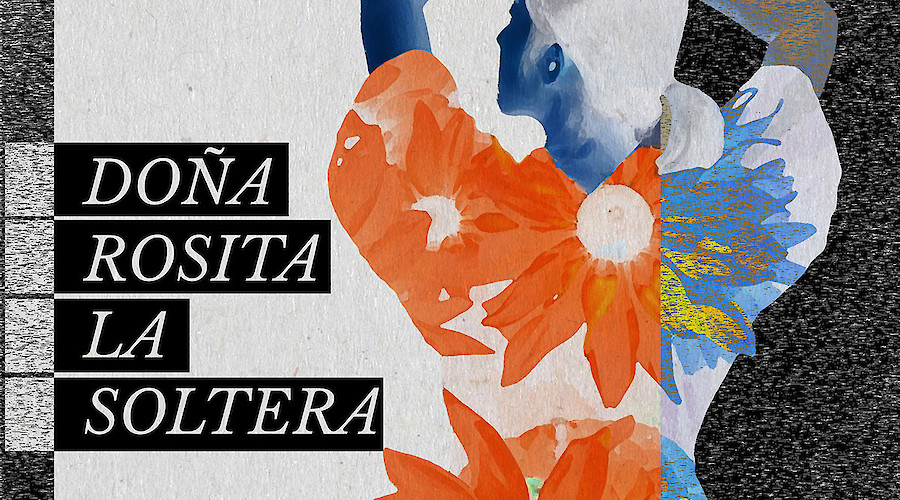Doña Rosita la soltera

GALA opens its 46th season at full capacity with a new adaptation by Nando López of Federico García Lorca’s classic “Doña Rosita the Spinster,” a play about the passage of time.
Doña Rosita the Spinster
- By Federico García Lorca
- Stage adaptation by Nando López
- Directed by José Luis Arellano
- In Spanish with English surtitles
When does a woman become a spinster? Doña Rosita la soltera o el lenguaje de las flores explores love, societal expectations, and betrayal at the turn of the 20th century, spanning a decade of Rosita’s life on the precipe of the first World War and her changing roles in a quickly-modernizing society. This exploration of womanhood by the great Lorca is an examination of what he called “the grotesque treatment of women” in Spain.
About Nando López
Nando López is a Spanish novelist and playwright with a doctorate in Hispanic Philology. He founded the company Armando no me llama with whom he premiered some of his first works. Since then, he has been included in the Anales de literatura española contemporánea, 2010/2 in the group Fourteen Voices of Spanish Theater, and written several notable works, including the novel La edad de la ira, the play De mutuo desacuardo, and the young adult novels El reino de las tres lunas and its sequel El reino de los tres soles.
For GALA, he has adapted García Lorca’s Yerma, José Zorrilla’s Don Juan, and La Vida es sueño by Calderón de la Barca. His adaptation of Yerma won six Helen Hayes Awards, including Outstanding Production in a Play. Much of his works explore difficult themes such as divorce, homophobia, generational disillusionment, and classroom politics. In 2020, López won the SM publisher’s Wide Angle Award for his work Eric’s Version.
About José Luis Arellano
José Luis Arellano, an acclaimed stage and television director from Madrid who won the 2016 Helen Hayes Award for Outstanding Direction of Yerma at GALA. Other GALA productions he has directed include Don Juan Tenorio, El viejo, el joven y el mar, El caballero de Olmedo, Ay, Carmela!, Cabaret Barroco, and Cervantes: El Último Quijote.
About García Lorca
Federico García Lorca (June 5, 1898-August 19, 1936) was a Spanish poet, playwright, and theater director, born in Granada, and assassinated by Francisco Franco’s administration. García Lorca attended the University of Granada where he studied law, literature, and composition, and then moved to the Residencia de Estudiantes in Madrid, where he became immersed in the artistic scene with people who were or becoming influencers across Spain. His first book of poems, Libro de poemas was published in 1921 which delved into themes of religion, isolation, and nature. He became increasingly involved in Spain’s avant-garde scene, where he cultivated friendships with people such as composer Manuel de Falla and painter Salvador Dalí.
His most popular and best-known book of poetry was 1928’s Romancero Gitano, which combined the ballads of the Andalusian countryside with Cubist syntax and Romantic imagery. In 1931, García Lorca was appointed director of a student theater company in the Second Spanish Republic with whom he toured impoverished rural Spain, bringing theater to people that never had the chance to see it.
Through this state-funded program, he became a passionate advocate for social action in theater. In 1934, the subsidy for the program was halved, and two years later the program was shut down, four months before García Lorca’s execution. The reason for his assassination is still not entirely known, and his remains have never been found.